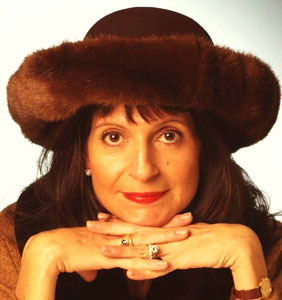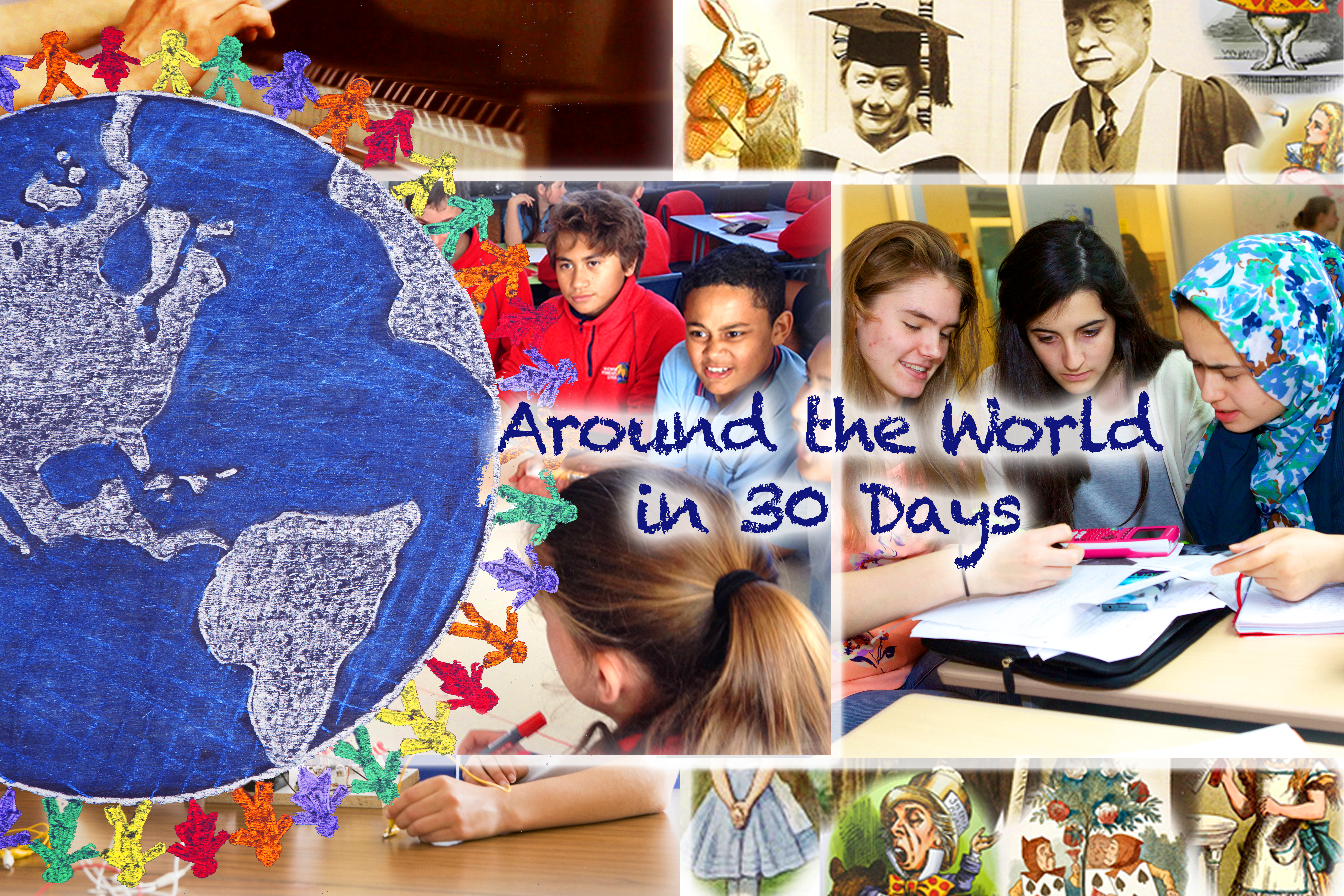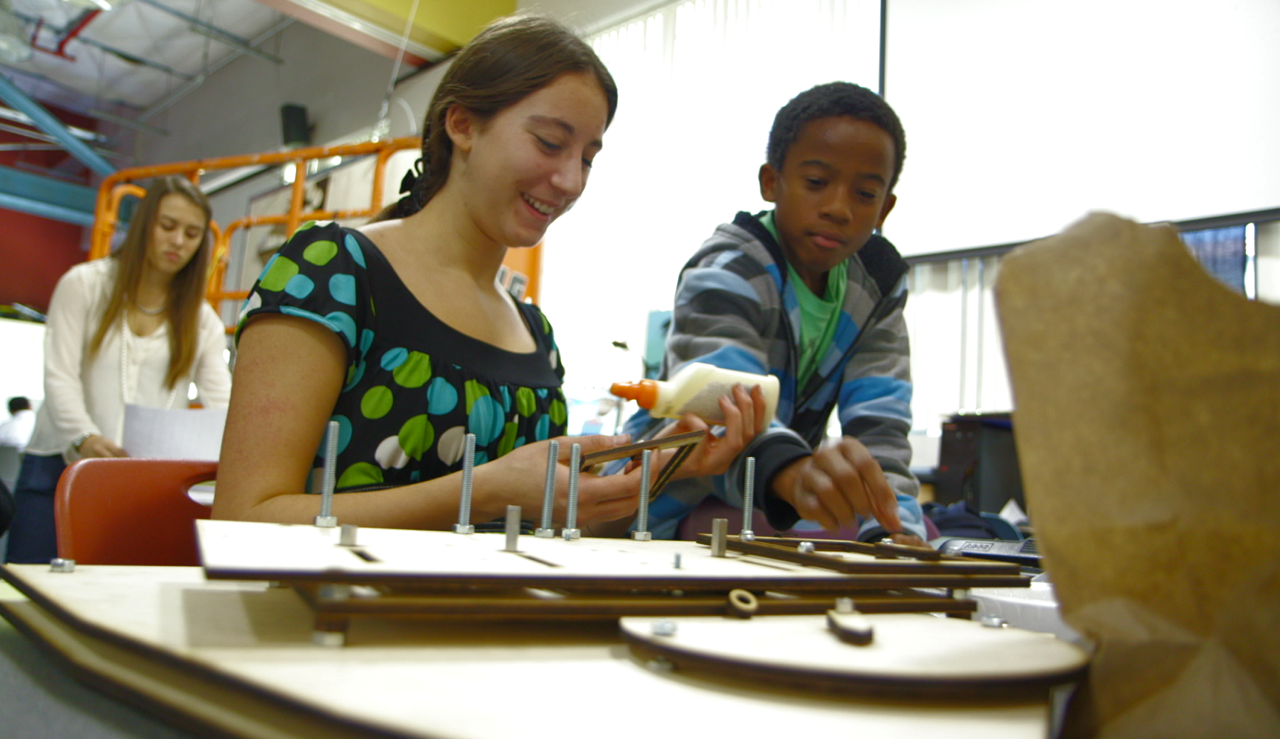
C. M. Rubin’s Global Education Report
The stark problem of inequality from a wide range of theoretical and hands-on perspectives was a major theme in my global discussions this month. Inequality (gender and economic) causes huge gaps in who can get a good education, but it also creates gaps in who are unable to use their education for employment. The solutions are numerous and complex, but one fact is clear — reducing inequality will help children, students and the future of schools. I also covered cultural stories, like the 150th anniversary of Alice in Wonderland and recently unearthed facts about its history. And for my global teacher bloggers, I asked whether or not social media can play a role in a better future of education?
Linda Scott (the DP World Chair for Entrepreneurship and Innovation at Saïd Business School, University of Oxford) spoke to me about the future of gender equality and empowerment for girls and women. She pointed to fascinating statistics that reveal how gender equality is the key for economic growth. Her reporting shows that gender inequality has much wider consequences than some might think: “Gender inequality fuels social instability, crime, and local conflict [and] women’s subordination is substantially enforced by their exclusion from the money system.” In the US, more women than men are in higher education, but as Linda Scott told me, if there is not equal opportunity in the work force, the benefits of their education will not be reaped. Her recommendation is: “A reporting system for equal pay that would hold employers accountable to disclose and redress gender imbalances would go a long way toward solving many gender problems in the workplace.” She also offers tips for how K to 12 teachers and parents can combat the development of gender inequality in their children and students.
Alice in Wonderland, the classic of children’s literature and Anglo-American culture, is celebrating its 150th Anniversary. Marking this occasion is Martin Gardner’s newly released Annotated Alice: 150th Anniversary Deluxe Edition (W. W. Norton & Company) that provides incredible details, along with several exhibitions in New York city and all around the world. To me, the most exciting and touching discovery is a recording of the real Alice Pleasance Liddell Hargreaves (in fact, a relative of mine!) speaking at the Columbia University Alice Centenary in 1932. The real Alice was the muse of Lewis Carroll, and he wrote the book for her as a Christmas gift in 1864. As I have been researching Alice Liddell for many years now, I was overjoyed by this discovery; I never thought that I would hear her speak! Paola Prestini, Creative and Executive Director of Brooklyn New York’s hot new haven for the arts, National Sawdust, talked about their plans to bring together artists from around the world to engage in composition-based projects, teaching opportunities, cultural exchanges, and hands-on management experience.
Social media is thought by some to be a virus infecting the community and wellbeing of students. Others think that it might be the greatest thing to have ever happened to education. I asked my Top 12 Global Teacher Bloggers what they think, and got a resounding sense from them that the negative stories about social media cover over a lot of really great benefits it can bring to the classroom — from global communication to a newfound delight in reading. Adam Steiner says our fear of social media will not help us to deal with its force: “The fact is that social media is here to stay and kids are going to use it. Channeling the ostrich and putting our heads in the sand will not help anyone. The alternative is to be the owl, to find wise uses of social media that guide students in the right direction.”
Sustainability is a key watchword right now, but how can schools participate in sustainability in a meaningful way? The UN’s report, “Transforming our world: the 2030 Agenda for Sustainable Development,” has set a plan of action in 5 areas: People, Planet, Prosperity, Peace and Partnership. I got the opportunity to talk to several important global leaders at the Close It Summit (an international summit that focuses on new employment pathways) about how they imagine the School of the Future. Parminder Jassal (CEO and Founder of the ACT Foundation) offered wonderful advice: “As global engagement inevitably continues to increase, schools of the future will be leaders in reaching across borders and oceans through these technologies to focus on sharing knowledge and advancing ideas while promoting diplomacy, respect, and cooperation.”
Last and certainly not least, David Istance (senior analyst at OECD’s Centre for Educational Research and Innovation) and Vicki Abeles (director, Race to Nowhere and author of Beyond Measure) offered tips on how to transform education from the competitive to the collaborative. Istance’s new study shows how to take schools, classrooms, teachers, and students out of their default state of seclusion and into the expanding network of global and diverse learning systems. Abeles told me, “All aspects of a child’s life must be considered: emotional, cognitive, physical, developmental and social. Once we let this discussion happen, social fears about “measuring up” and “competing” with other children begin to break down.”

Join me and globally renowned thought leaders including Sir Michael Barber (UK), Dr. Michael Block (U.S.), Dr. Leon Botstein (U.S.), Professor Clay Christensen (U.S.), Dr. Linda Darling-Hammond (U.S.), Dr. MadhavChavan (India), Professor Michael Fullan (Canada), Professor Howard Gardner (U.S.), Professor Andy Hargreaves (U.S.), Professor Yvonne Hellman (The Netherlands), Professor Kristin Helstad (Norway), Jean Hendrickson (U.S.), Professor Rose Hipkins (New Zealand), Professor Cornelia Hoogland (Canada), Honourable Jeff Johnson (Canada), Mme. Chantal Kaufmann (Belgium), Dr. EijaKauppinen (Finland), State Secretary TapioKosunen (Finland), Professor Dominique Lafontaine (Belgium), Professor Hugh Lauder (UK), Lord Ken Macdonald (UK), Professor Geoff Masters (Australia), Professor Barry McGaw (Australia), Shiv Nadar (India), Professor R. Natarajan (India), Dr. Pak Tee Ng (Singapore), Dr. Denise Pope (US), Sridhar Rajagopalan (India), Dr. Diane Ravitch (U.S.), Richard Wilson Riley (U.S.), Sir Ken Robinson (UK), Professor Pasi Sahlberg (Finland), Professor Manabu Sato (Japan), Andreas Schleicher (PISA, OECD), Dr. Anthony Seldon (UK), Dr. David Shaffer (U.S.), Dr. Kirsten Sivesind (Norway), Chancellor Stephen Spahn (U.S.), Yves Theze (LyceeFrancais U.S.), Professor Charles Ungerleider (Canada), Professor Tony Wagner (U.S.), Sir David Watson (UK), Professor Dylan Wiliam (UK), Dr. Mark Wormald (UK), Professor Theo Wubbels (The Netherlands), Professor Michael Young (UK), and Professor Minxuan Zhang (China) as they explore the big picture education questions that all nations face today.
The Global Search for Education Community Page
C. M. Rubin is the author of two widely read online series for which she received a 2011 Upton Sinclair award, “The Global Search for Education” and “How Will We Read?” She is also the author of three bestselling books, including The Real Alice in Wonderland, is the publisher of CMRubinWorld, and is a Disruptor Foundation Fellow.
Follow C. M. Rubin on Twitter: www.twitter.com/@cmrubinworld





Recent Comments